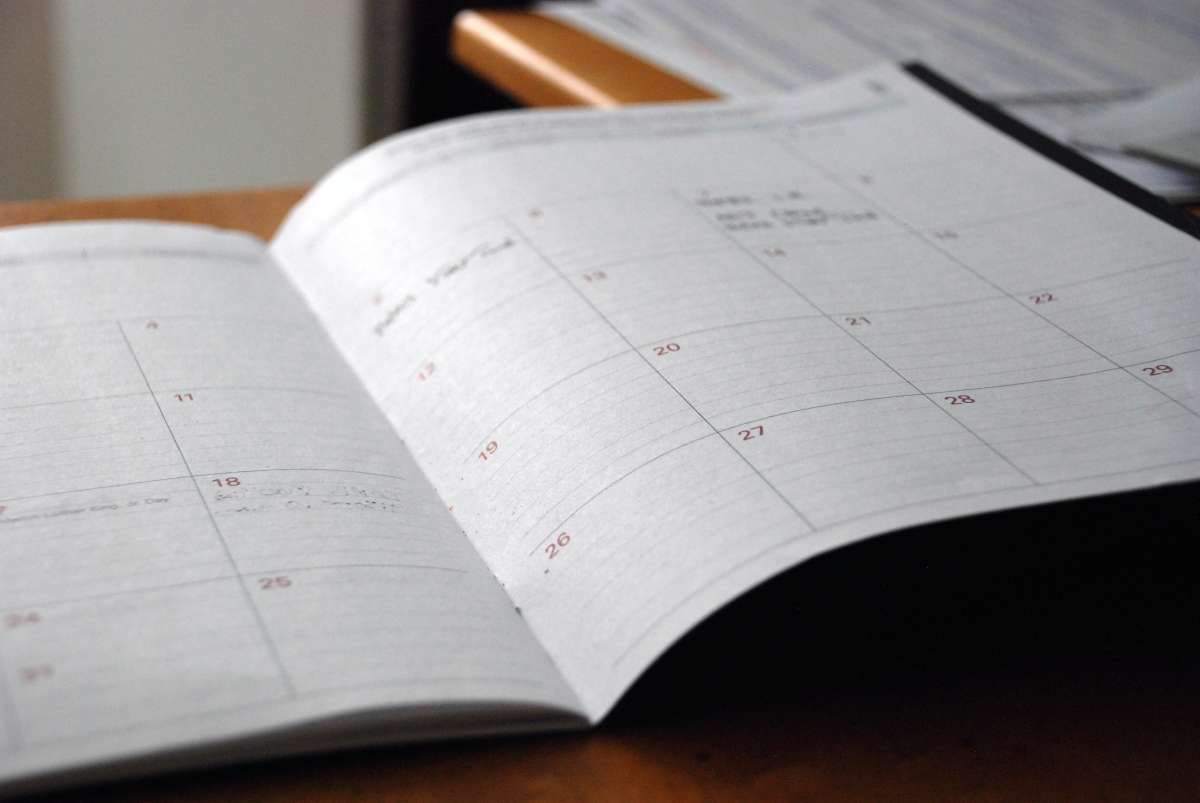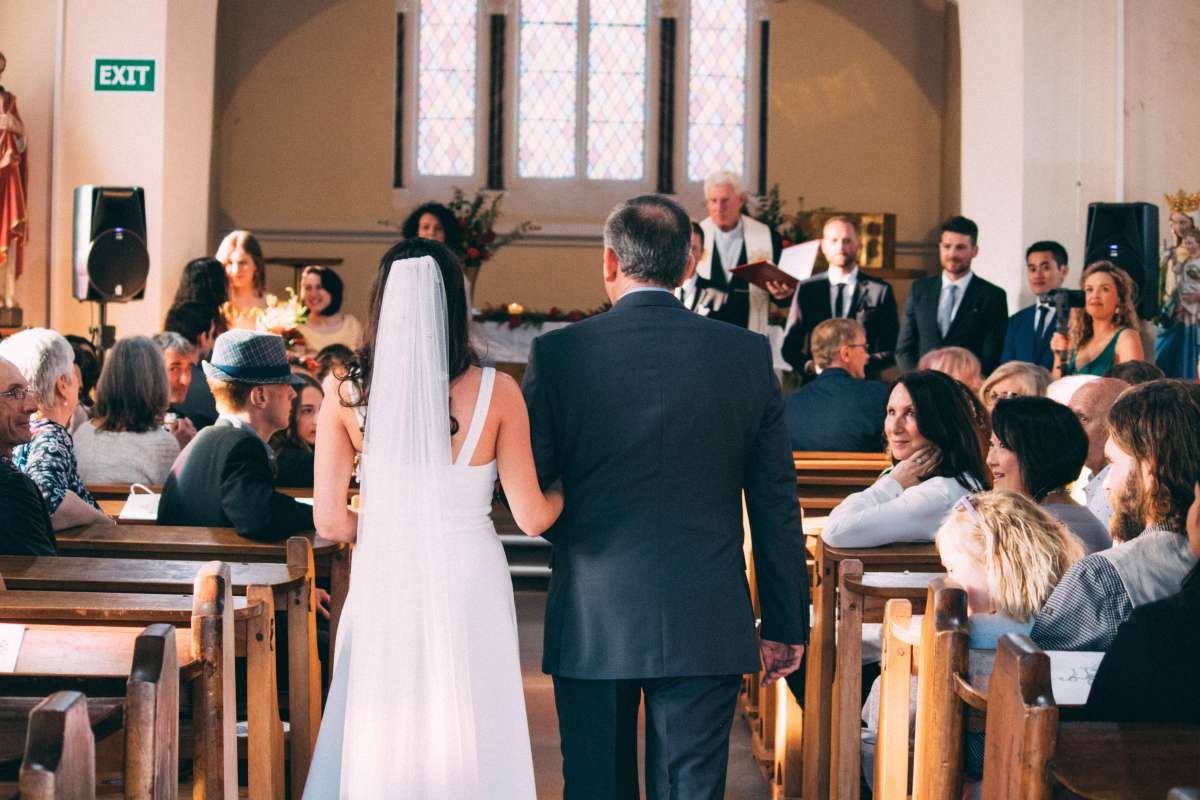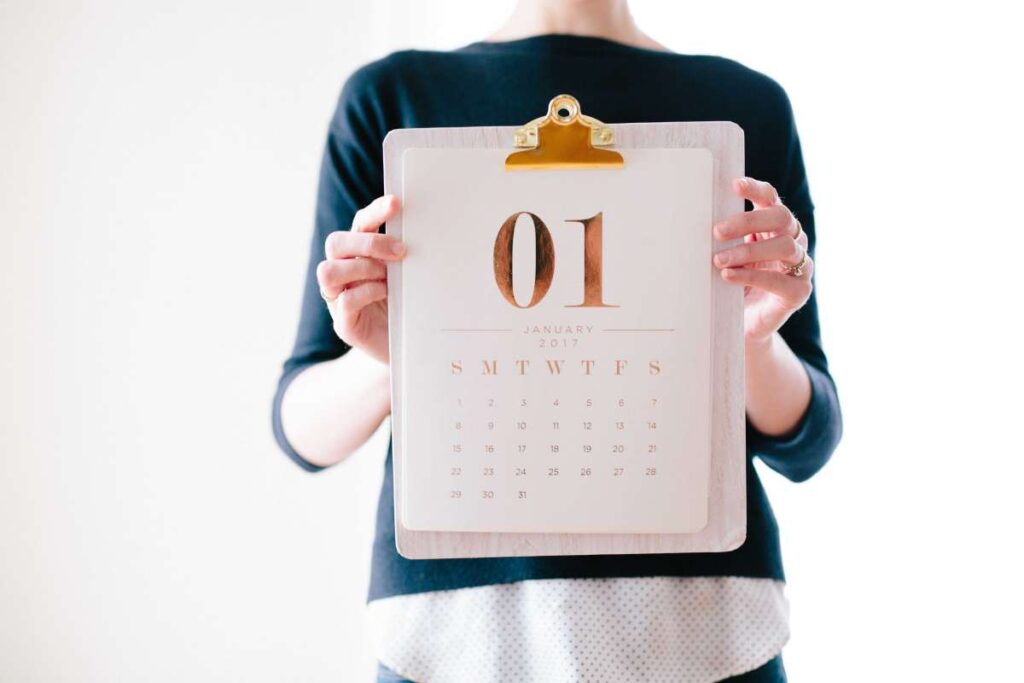Many engaged couples struggle with picking the best possible wedding date.
You need to plan ahead for things like family members' schedules, national holidays, finances, and the weather to make sure your wedding goes off without a hitch. Boutique Events Group has established itself as a Melbourne landmark, particularly as a wedding venue and event space. Don't delay in making your reservation.
If you're having trouble deciding on a wedding date, use this tried-and-true checklist as a starting point.
How Soon Should You Pick a Wedding Day
Each couple needs to find a date that works for them, but figuring out how much time you have to organise your amazing wedding is a good place to start.
A 2019 study found that the typical length of a marriage or committed relationship is 15 months.
Most couples would benefit from having at least a year to prepare for their wedding.
Finding and ordering your wedding dress can take 9 to 11 months, so setting your wedding date at least a year in advance will give you plenty of time to plan (some are booked a year in advance).
To that end, before committing to a certain date (or making your save-the-dates), you should select your ideal venue and find out what days they have available.
Alternately, if you tend to worry excessively about major projects, a wedding in the far future may cause undue tension.
In this instance, you should probably think about cutting your commitment short. However, rest assured that there are no incorrect responses.
It will be a mad dash to the finish line if you set your wedding date six months after the engagement, but you'll find a way, and some individuals actually thrive under pressure.
Too busy with life to really plan your wedding in detail? Have someone else do it for you and check out our list of Wedding Planners in Melbourne to help take the stress away.
What Are the Most Popular Months for Weddings?

Saturdays from May through October are often the busiest months, though this varies by area, according to Costin.
(Couples who are concerned about the weather should probably not plan an outdoor wedding in late July or August.)
Recent years have seen an uptick in the popularity of weddings held in early November, despite the fact that October has traditionally been the most popular month for weddings.
As a result of the delayed nuptials caused by the coronavirus epidemic, 2021 and 2022 will have extremely high demand for traditionally popular dates.
You can avoid disappointment by being flexible with your wedding date or by booking your venue as soon as possible.
What Are the Least Popular Months for Weddings?
Fewer weddings take place in the cooler months, from late November to January, but that doesn't mean they are any less romantic.
What Holidays Should I Avoid?
It's best to avoid family-oriented holidays like Christmas and Thanksgiving if you're planning on inviting a large group of people who aren't particularly close.
Guests are generally spending time with relatives or travelling on their own then.
What Holidays Are Okay?
For obvious reasons, New Year's Eve is a popular time to get married. What could be more joyous than synchronising the start of your married life with the start of a new year? Firing off confetti cannons and fireworks at midnight is a classic and always enjoyable tradition.
Can My Wedding Date Affect My Budget?
The date of your wedding might have a significant effect on the overall budget.
Some venues (and providers, especially caterers) offer drastically reduced rates during the slower months.
This is also true for the day of the week, with weekday weddings, as well as Friday and Sunday weddings, typically costing less than their Saturday counterparts.
Season and holidays like Mother's Day and Valentine's Day might affect flower availability and price.
Tips for Picking Your Wedding Date
Brainstorm Any Dates That Are Symbolic to You
How sweet it would be to tie the knot on the anniversary of your first date, the day you became an official couple, or your grandparents' wedding day!
For example, Japanese families may consult the ancient astrological calendar known as the koyomi in order to select the most propitious date for their special event.
It's possible that you won't be able to get married on the exact date you want (perhaps because it falls on a Monday or because the venue you adore is already booked), but it's also possible that you'll be able to get very close.
(If you see any telltale signs of time in your ceremony's programmes, be sure to inform your guests.)
Pick the Season You Want.
The style, location, and even the mood of your wedding can all be affected by the weather. So, think about the kind of wedding you want, and then pick a season.
You're looking for cocktails and settings with a carefree, tropical vibe, right? Therefore, a wedding should be held throughout the summer.
Wishing for the finer things in life, for snow and festive cheer? If you want to do something different, try a winter wedding.
If you're into freshness, pastels, and a daffodil bouquet, a spring wedding is definitely more your speed, while a fall wedding is ideal if you're into rich colours, nostalgia, and mulled apple cider.
Ask for the Preferences of Your Vip Guests.
They are the folks that you and your future spouse simply cannot get married without, and we all have them.
Make sure the parents, close friends, and anybody else you consider essential can make it to the wedding before settling on a date.
Talking about invitees, but only the A-list, must-have-them kind:
If your options are restricted, you might want to enquire with close friends and family about potential date conflicts.
Asking those who aren't part of your immediate family or circle of trusted friends can be dangerous. We ask that you keep things straightforward and firm after a date has been agreed upon.
Talk to Your Vendors.
Perhaps you've been following the work of a particular photographer for quite some time, or perhaps the band that performed at your cousin's wedding was the greatest you've ever heard.
Be sure to confirm the availability of any vital service providers for your wedding day before setting a firm date.
Avoid Big Sporting Events and Conventions.
If many of your wedding guests are coming from out of town, they may have trouble finding hotels if your big day falls on the same weekend as a major city-wide event.
In a post-pandemic environment, pay attention to marathons, big-name concerts and festivals, and even when football games occur in particular college cities.
While reserving a block of rooms for out-of-town guests in advance will help alleviate some of these concerns, you should still prepare for the possibility of street closures and traffic jams that could disrupt your wedding weekend plans.
Consider Other Weddings With Overlapping Guest Lists.
Make sure the two weddings are far enough apart in time and place if you know that another wedding with a comparable guest list (a sorority sister, a sibling, or a cousin) will be taking place in the same year as yours.
Space out your events by at least three to four weeks, depending on your guest list.
It's possible that the young, frequent travellers among them won't mind going from one state to another, but it's still a good idea to build in some downtime between nuptials to avoid any sense that they're piling on top of one another. You haven't decided on the design of your wedding stationery yet?
Check out our list of 28 Wedding Invitation Ideas to help you choose.
If not, visitors may pick one attraction over the other.
Do Extra Research for a Destination Wedding.
It's a good idea to plan ahead and avoid travelling during peak seasons like spring break or when there's a hurricane risk in the area.
Guests will appreciate being given nine months to a year's notice, especially if the event necessitates expensive international travel.
Budget
When choosing a wedding date, it's important to keep your finances in mind. The cost of a wedding will increase if it takes place at the busiest time of year for such events.
Also, weddings tend to be more expensive on weekends, so if you're planning one, keeping it on a weekday instead can help you save a lot of money.
In addition, the time you have to save up for the big day will depend on how long your engagement is; a long meeting will give you plenty of time. On the other hand, if you don't have any savings or if someone else is paying for your wedding, a longer engagement is the way to go.
Events and Holidays
When trying to decide on a wedding date, it's important to take into account a number of events and holidays.
If you don't want to steal the spotlight from the celebrated family member(s), you should try to avoid their birthdays and anniversaries. Because of other commitments, some invited visitors might be unable to join you this Christmas.
Local and national events, such as major sports competitions, festivals, and other celebrations, should also be removed from consideration; for example, many brides in 2018 have had to ask their guests to reschedule their attendance at the wedding because of the World Cup.
Don't forget to consider whether or not a date that falls within the school holidays would be more convenient for your guests.
Weather
The wedding's timing is crucial for more than just the bottom line.
You and your guests might benefit from considering how you and they will react to various weather conditions.
The idea of an August wedding in the middle of summer seems lovely in theory, but you should give some thought to how much heat you can handle, especially while wearing a bulky, heavy wedding dress.
Weddings in the winter can be stunning, but you shouldn't risk your guests becoming sick or cold.
Check weather prediction websites, which compile the average temperature and circumstances from prior years on a specific date, to check if your chosen date will be appropriate.
Give Yourself Time
As was previously discussed, the time you have to save for the wedding will depend on how long your engagement lasts.
It is equally important to give yourself enough of time to plan, organise, and book your favourite vendors.
If you're only expecting a six-month engagement time, you may not be able to get the services of the reputable local vendors you'd like because they are already booked a year or more in advance.
Similarly, if you prefer to order your wedding dress from a bridalwear store rather than buying it off the rack, you should allow at least nine months for delivery and modifications.
Ask Your Family
Weddings aren't just about the happy couple, but also about the people who are important to them, especially the family members who are celebrating with them.
Your parents and other close relatives may be unable to attend your wedding if the date you've chosen is inconvenient for them.
When planning a wedding, it's important to check with both sets of parents to see if there are any dates that should be avoided due to work, important appointments, or anything else.
It's also important to find out if there are any days of the week that are out of the question, as well as how much advanced notice they'd need to take time off from work or change their already-made plans.
Contact Your Preferred Venue(s)
If your prefered location(s) is/are unavailable on your prefered date, there is no use in committing to a date.
Inquire with the potential locations about their availability - Numerous places become reserved years in advance, so if your prefered date is already taken, you may need to make concessions.
The availability of the wedding venue is often the deciding factor for the date chosen by the bride and groom.
This simplifies things if you haven't settled on a date yet, but it can be disappointing if you have your heart set on a particular date.
Skip Certain Dates.
You shouldn't plan your wedding around certain dates. You shouldn't get married the weekend before Tax Day, especially if you or your intended is a tax professional.
Don't get married during your career's busiest season.
Either you'll be too overwhelmed to go on your honeymoon or you won't be able to get away quickly enough. You may also be prohibited from engaging in certain activities at specific periods of the year or on specific days of the week according to your religious beliefs.
Consider Local Events
Perhaps there is an annual film festival that takes place on the same weekend in your city, or a major sporting event that occurs at the same time each year.
To be sure your chosen date is free of conflicts with other events, check an online calendar.
Think About How Long Your Engagement Will Be
Both short and long-term commitments have their pros and cons. If you've got four months to make your choices, you'll go at it like your posterior has been set on fire.
With a two-year engagement, you might start to question if you're getting married.
So, if you're free to choose, do so by settling on a timetable for wedding preparations that suits you.
(And hey, it might be simpler to get done in three months if you're an over-planner and chronic worrier.)
What Is the Cheapest Month to Get Married?
Choosing the right wedding date might be largely determined by your financial resources.
Popular wedding months are June, September, and October, so expect to pay more during those times.
Venues and services are in high demand, so you'll have to compete with many other couples.
Weddings are quite popular in February because of Valentine's Day, and in December because of Christmas.
If you want to save money on your wedding, the best time to have it is in a month that is not traditionally associated with such events.
Typically, the least expensive months for a wedding are March, April, and November.
The cost of a wedding on a Saturday night is far higher than if you got married on a weekday, so plan accordingly (venues may even bid against each other to get your business).
What Are the Luckiest Days to Get Married?

Superstitious? Or maybe you just want to pay homage to your religious or cultural traditions by having your wedding on a special day.
We understand. There's nothing improper about checking if the stars are in alignment on your wedding day.
If you're Jewish, you should get married on a Tuesday because that's considered a lucky day.
As the Torah's third day, God blesses it. That is to say, individuals who prefer to pay tribute to their Jewish roots should do so on Tuesday.
A sprit of the Emerald Isle in you? Then have your wedding on New Year's Eve, December 31. The Irish have good fortune on this day.
Besides, a new year is a great time to start fresh by welcoming a new partner into your life.
Honoring Chinese customs necessitates the use of the number eight or nine, both of which are viewed as particularly auspicious.
Eight sounds like the term meaning wealth, whereas nine is pronounced similarly to "long-lasting."
The Chinese New Year is also a significant holiday, but its exact date is determined by a complicated computation of lunar events and hence shifts every year.
As a last note, June is a great month for weddings if you're a history lover.
Juno, the Roman goddess of marriage, inspired the naming of this month. Couples who celebrate her month will earn her favour. Figure out when the most favourable times are to tie the knot.
Conclusion
For whatever reason, when it comes down to it, the choice of a date is typically made for you.
Looking for a Wedding Event Planner? Look no further, Boutique Events Group have you covered.
So, yes, you may safely stop pinning wedding ideas to your board. Still, this is exciting since it indicates your wedding plans are progressing. In fact, that's fantastic.
Frequently Asked Questions About Wedding Date
If you're planning a destination wedding, the rule of thumb is the sooner, the better. You should shoot for a date at least a year out. If your wedding is going to be local, it's considerate to give your guests (and yourself) 6 to 12 months' notice.
If you're saying "I do" on October 22, 2022, you've officially landed the number-one most popular wedding date. According to The Knot Real Weddings Study, around 90,000 couples will marry on this date in 2022.
Some couples choose to nail down the exact date when they'd like to wed and then find venues that can accommodate that particular day. Other couples with more flexible timelines look for venues first and then choose their date on their selected venue's availability.
The most popular months to get married are from May to October. More specifically, September takes first place at 16 per cent, followed by June with 15 per cent, and lastly October at 14 per cent. The most popular wedding seasons are Fall/Autumn and Summer.
January
In most parts of the country, the deep winter months (January, February and March) are the least popular for weddings. Only 5% of weddings take place during winter, according to our study. Per our data, 3% of weddings took place in December, 1% took place in January, and 1% took place in February.

